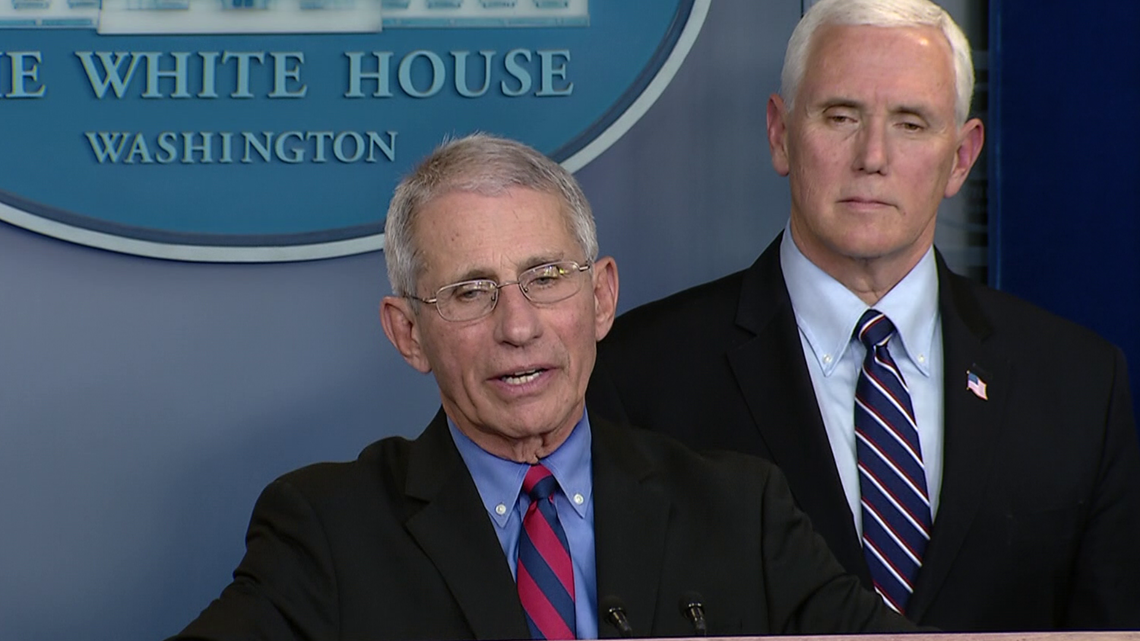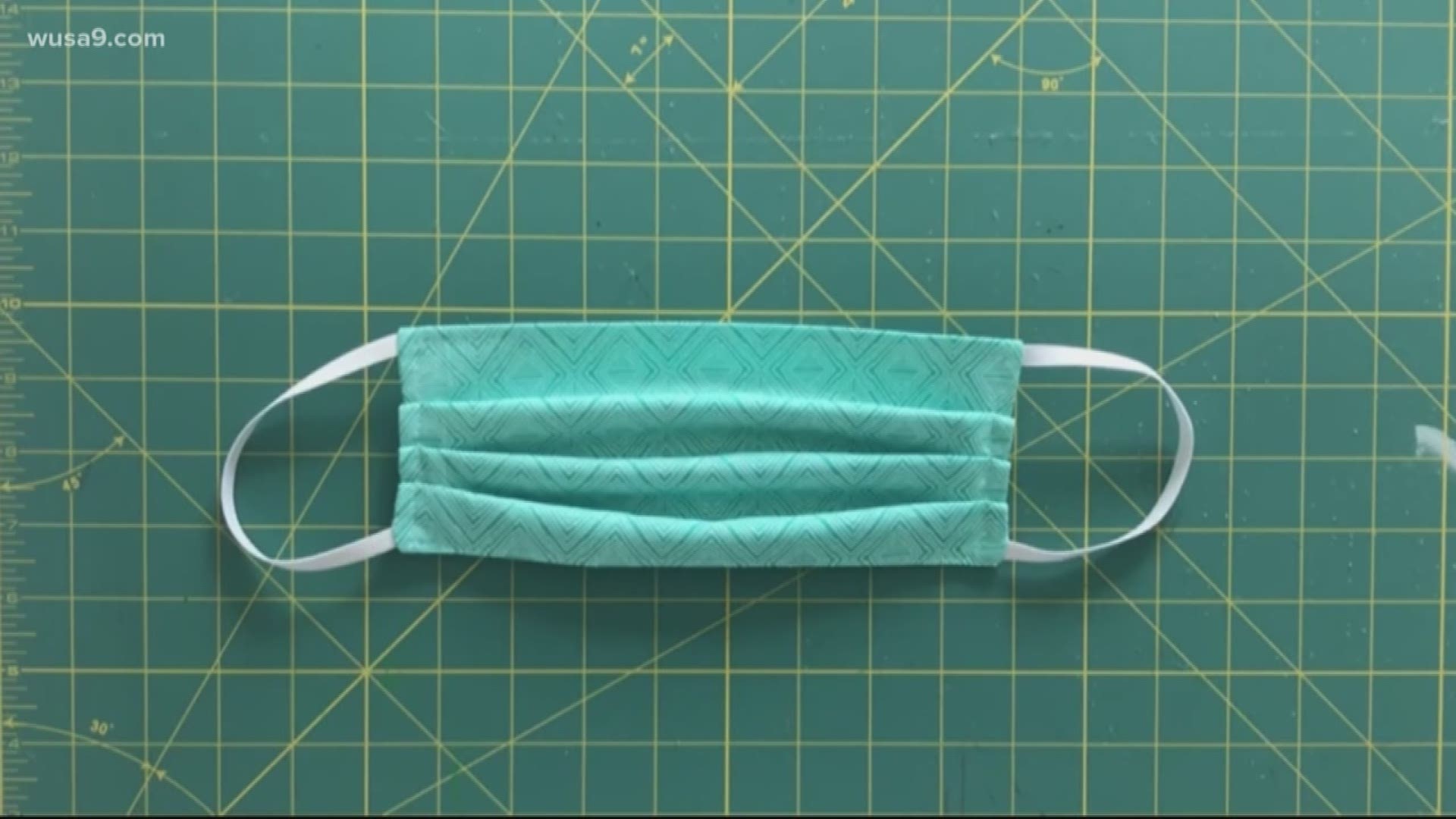WASHINGTON — As hospitals put out desperate pleas to the federal government for basic gear to protect doctors and nurses treating coronavirus patients, everyday folks have tried to step up and fill the void.
From crafty moms to a creative sporting goods company called Fanatics, lots of people are using whatever fabric they have lying around the house to make homemade hospital masks.
But that might not be a good thing, according to Christopher R. Friese, Hosmer Professor of Nursing, Health Management and Policy at the University of Michigan.
“They're not manufactured in a stable environment. They're not manufactured consistently. And there's a lot of questions about what materials, if any, would provide any protection to healthcare workers,” Friese said, noting small studies showed similarly constructed homemade masks were ineffective at preventing transmission of the flu.
“Particularly with cotton masks, they might be harmful, because they may have condensation and moisture that would transfer from patient to patient, possibly putting other patients at risk,” Friese said.
The issue, the professor said, is the masks haven’t been tested in a lab to know how safe and effective they are, and often use materials that really don’t provide any protection to health care workers.
Still, that hasn’t stopped some hospitals, like St. Luke’s University Health Care Network in Pennsylvania, from asking for, and receiving, thousands of those potentially ineffective homemade hospital masks.
President Trump’s top infectious disease expert said Wednesday that should be a last resort.
“You would only recommend that under desperate situations,” said Dr. Anthony Fauci, Director of the National Institute of Allergy and Infectious Diseases and a member of President Trump's Coronavirus Task Force.


Professor Friese said, rather than spending time at your dining room table stitching together makeshift hospital masks that probably won’t protect against coronavirus, use your time looking around your house for protective gear that may have been left over from a painting or home construction project. Because some of that stuff is actually strong enough to do doctors and nurses some good.
In Virginia, Mary Washington Healthcare says it has made the decision to have all medical staff treating COVID-19 patients wear an N95 fine particulate mask. In preparation for a possible future mask shortage, the organization says it is accepting homemade masks as a "last resort option," should they be needed.
"As to the efficacy, the homemade masks meet the standards set by the CDC’s recommendations of using bandanas as a last resort to replace a Level 1 surgical mask," said Lisa E. Henry, director of corporate marketing and communications for Mary Washington Healthcare. "There is no scientific evidence reported of the efficacy of homemade masks. That is why we are adamant that our associates in patient care areas must use the supplied, appropriate PPE for the level of care they are providing in our facilities. Until such time that we no longer have a supply of that PPE, we are not replacing that supply stock with homemade masks."
On Friday, St. Mary’s County Health Department in Maryland put out a call for donations of protective equipment.
The St. Mary’s County government is collecting the following unopened medical supply items:
- Universal viral mediums
- Nasopharyngeal swabs
- Facemasks (handmade masks may also be accepted – pattern and information here)
- Nonsterile disposable patient examination gloves, latex-free, all sizes
- Nonsterile disposable isolation gowns
- Surgical gowns (ANSI/AAMI PB70 Levels 1-4)
- International gowns and coveralls
- Single-use or reusable face shields
- Powered air purifying respirators (PAPRs) or full-face elastomeric respirators
- Medical eye shields and reusable goggles
- N95 respirator, including surgical N95 respirators
- Alcohol-based hand sanitizer that contains 60%-95% alcohol
- Protective suits such as Tyvek suits
- Non-Contact infrared thermometers
Local medical providers, dental providers or community members who have these items and would like to donate them for local reserve may do so by contacting the St. Mary’s County Department of Emergency Services, Monday through Friday, from 8 a.m. – 12 p.m. at: 301-475-4200, ext. 72120 to arrange a drop off time and location.
RELATED: DMV Coronavirus Tracker: See where every reported COVID-19 case is in Maryland, DC, Virginia

